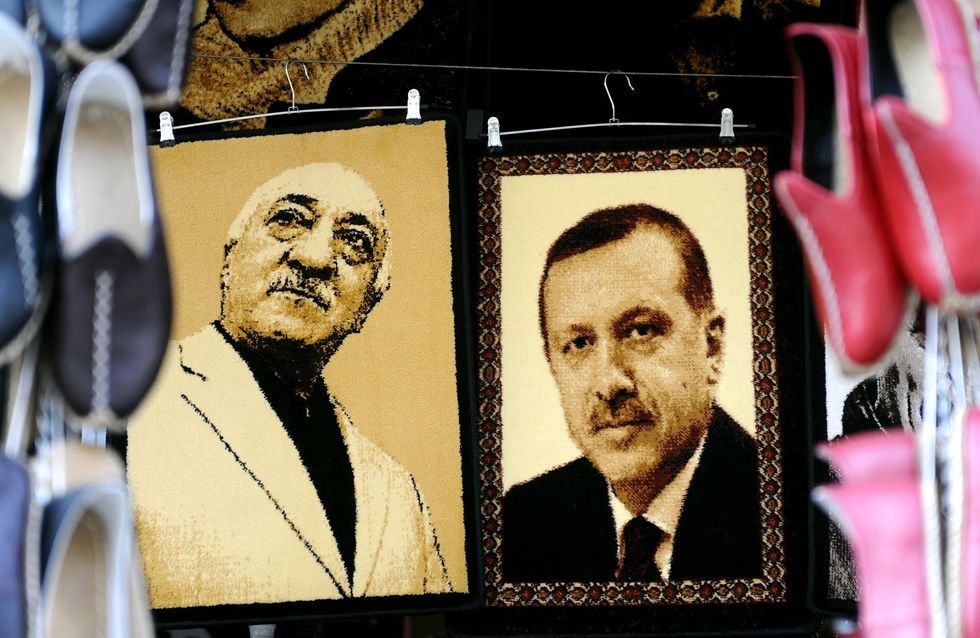The U.S. is considering extraditing a political enemy of Turkish President Recep Tayyip Erdogan, in an attempt to get the Turkish government to ease up pressure on Saudi Arabia over the killing of Saudi journalist Jamal Khashoggi.
Who is Fethullah Gulen?
Fethullah Gulen is a 77-year-old Turkish cleric who has been living in exile in the U.S. since 1999. He's also the leader of a movement that focuses on interfaith and humanitarian work. Gulen is reportedly living in the U.S. on a green card.
Erdogan's government has accused Gulen of being a terrorist, and being behind the failed 2016 coup against Erdogan. Gulen has denied these charges. Coincidentally, the Turkish government leveled the same charges against pastor Andrew Brunson, who had been imprisoned for two years before the U.S. finally secured his release. Erdogan's government has arrested more than 50,000 people it has accused of being involved in this coup.
Turkey also uses the term “terrorist” in ways the U.S. might not. While it had been slow to join the fight against the Islamic State, Turkey has launched repeated attacks against U.S. Kurdish allies. Turkey has had trouble with a group of Kurdish militants inside its own borders, a group the U.S. also considers to be terrorists and has imposed that same terror label on the entire ethnic group.
The Turkish government has demanded that the U.S. turn over Gulen for years, but the U.S. refused.
What happened now?
The Trump administration reportedly reached out to the Department of Justice and the FBI about finding legal ways to extradite Gulen, or at least to kick him out of the U.S. It has also requested information regarding his legal status in the U.S.
One possible option being discussed, according to NBC News, is to force Gulen to move to South Africa. This would be legally difficult or impossible to do, though, unless he went on his own free will.
In order to be extradited, prosecutors would have to prove that Gulen had committed a crime in Turkey that would be illegal in the United States.
What changed?
The reason behind the new change in policy for the U.S. reportedly lies with the Turkish response to the murder of Khashoggi. The Washington Post columnist was killed after entering the Saudi consulate in Istanbul on Oct. 2. The Saudi government at first insisted that Khashoggi had left the consulate alive, but later admitted that he had been killed and his body disposed of. Saudi prosecutors are conducting trials and seeking the death penalty for men they say were behind the killing.
After Khashoggi's disappearance, the Turkish government began claiming that it had proof that the Saudis were behind Khashoggi's disappearance. Despite its own terrible record of behavior towards journalists, the Turkish government raced onto the world stage with righteous indignation.
President Donald Trump has walked a fine line when it comes to Khashoggi's killing. Both Turkey and Saudi Arabia are crucial U.S. allies. While the U.S. government has sanctioned 17 Saudi officials, Trump initially seemed hesitant about assigning blame for Khashoggi's killing on Saudi Arabia. Analysts have speculated that this move could be an attempt by the White House to get Turkey to ease up on its PR campaign against Saudi Arabia.
This isn't the first time Gulen has been in U.S. headlines
In 2017, special counsel Robert Mueller investigated alleged plan for former national security adviser Mike Flynn and his son to deliver Gulen to Erdogan's government in return for $15 million.
Flynn's attorney denounced these accusations as “outrageous” and “false.” In a 2016 op-ed for The Hill, Flynn had praised Erdogan's government and denounced Gulen as “a shady Islamic mullah.”
Shortly after Trump's inauguration, and while Flynn was still employed by the president, the Trump administration started reexamining Turkey's request for the U.S. to extradite Gulen.




